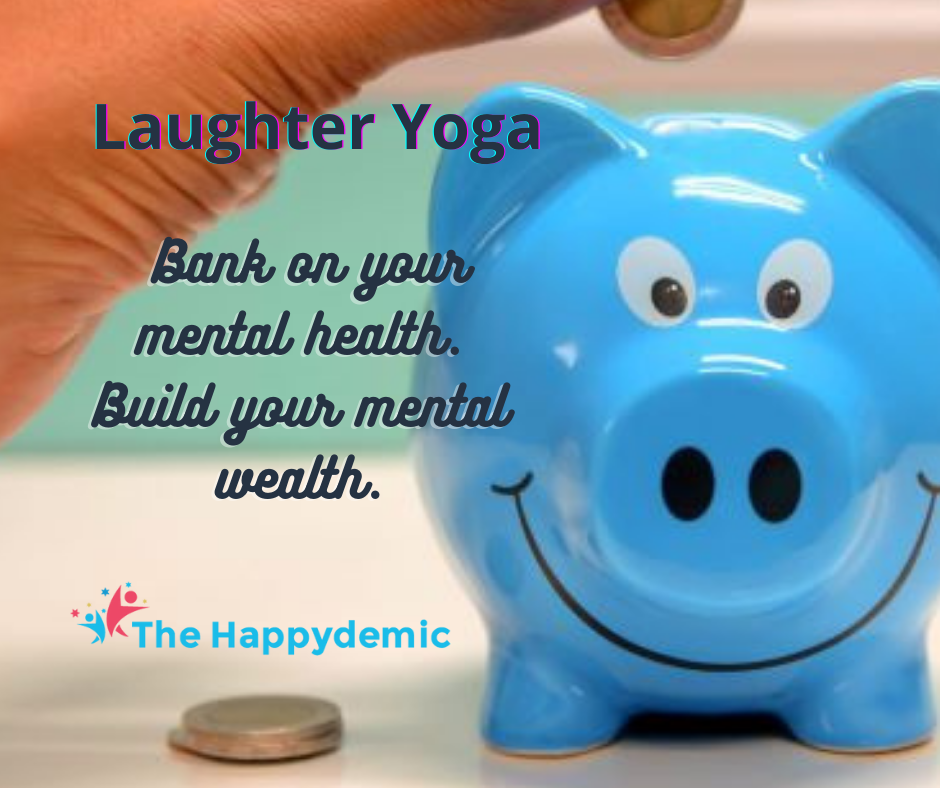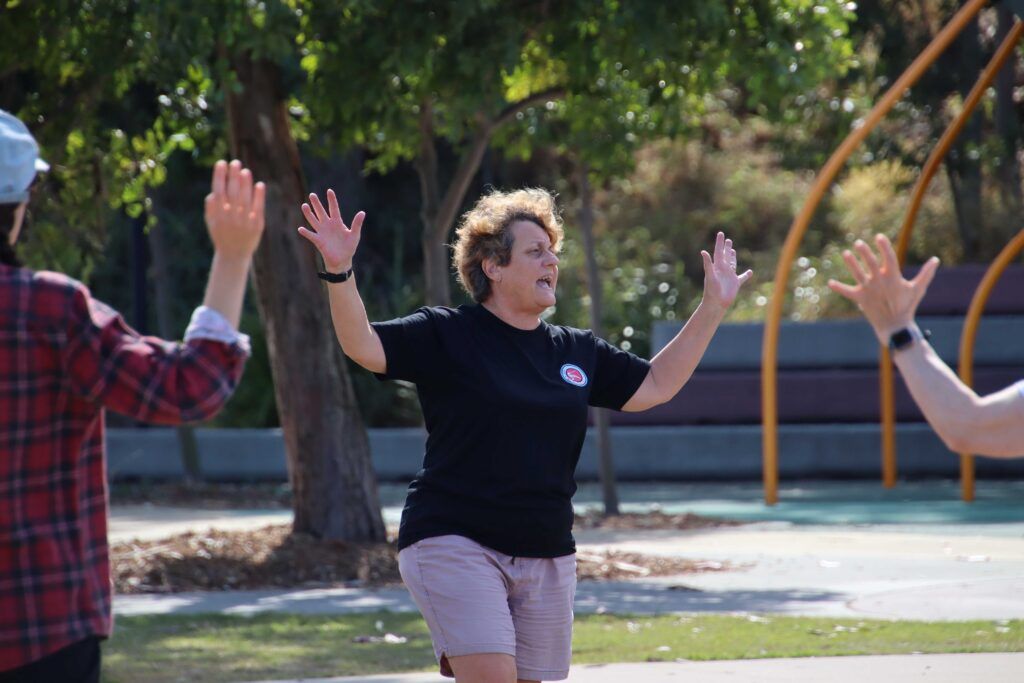
Banking on your mental health
What does the term ‘mental health’ mean to you?
Too often still, I feel, a negative association is made when those two little words are combined.
It took me a while to realise that we all have mental health, whether that’s good or bad.
It’s a bit like debt.
Not all debt is bad debt: some is good and some is smart. So explained friend Helen Baker, years ago as I set out to become more financially literate. Helen Baker, one of Australia’s first financial advisers to hold a Master’s degree in the field, is the author of three really practical guides: On Your Own Two Feet: Steady Steps to Women’s Financial Independence, On Your Own Two Feet – Divorce: Your Survive and Thrive Financial Guide and this year’s release Money for Life. Check them out here.
She emphasised to me the importance of doing small things early for a long period of time. I can still hear her saying: “Small actions over a sustained period generally produce a better result than taking big risks down the track.”
Helen reinforced the importance of diversification. Rather than putting all my eggs in one basket, I needed to have 5 financial foundations in place: spending and investment, emergency fund, insurance, superannuation, and estate planning.
Helen Baker’s lessons in financial wellbeing are true for mental health too.
When we bank on our mental health, we build our mental wealth.
Good mental health is when we cope with stressors of our daily lives, contribute to community, feel a sense of purpose, and are connected with others.
It’s something I strive for, protect and value—because it’s not always been so for me.
My mental health story
More than 2 in 5 adult Australians (42.9%) have experienced a mental health disorder in their lifetime. I’m one of them.
I was first diagnosed with major depressive disorder in the late 1980s. I was in my mid 20s, newly married, and working crazy hours, meeting deadlines. I was seemingly always on top of everything but felt … nothing. I quietly went about seeking treatment from a psychiatrist, was dosed up to the eyeballs on antidepressants for a couple of years (and remember very little of those years) and was ‘cured’.
My marriage ended abruptly in October 1996. Overnight I became a single working parent with two little ones (aged 2 and 4), needing to find a home.
Somewhere after the shock and grief, that old black dog, Depression, took residence again. And it brought its mate, Anxiety, with it. I couldn’t bring myself to ask for help: the children’s father was a newly-qualified psychiatrist himself, we’d socialised over the years with so many in the network. So I did something I could do behind closed doors: I started to self-medicate, numbing my feelings with alcohol, initially only on access weekends but gradually, as the kids grew up, more like nightly. It’s not something I’m proud of.
As I was to learn, there was never any answer in the bottom of that bottle of wine, and alcohol was never going to soothe my sense of loss or loneliness, despair and failure: all it did was make me feel worse about myself.
In 2006, with the kids (now young teens) away on access holidays, I quietly admitted myself into hospital for alcohol rehabilitation and commenced years of therapy.
Those experiences are undoubtedly what drove me to learn more about the science of happiness, drew me to Laughter Yoga, and ultimately to change careers. I work for balance. I am a fabulous work in progress and maintain a vigilance to stay mentally well.
How to build mental wealth

Just as Helen Baker taught me about financial diversification, many different actions support my mental health, and in the process, mental wealth. I’ve stuck with the basics: there’s no rocket science here.
1. I stay active. I’m fortunate to live just minutes from the waters of Moreton Bay so walking along the waterfront and swimming in the sea are easy. I go the gym and do strength training. I put the music on and move to it. I do Laughter Yoga.
2. I eat well, choosing nourishing balanced meals and staying hydrated. HANXIOUS (being hungry and anxious) is not a good look for me.
3. I seek connection with others—my family, friends, my community. Laughter Yoga (through social Laughter Club) plays a big part in this too.
4. I rest. I’ve been slow to learn that for me being busy all the time is not helpful.
5. I smile. To others and to myself. In company, and alone.
8.
10. As a former journalist this was tough, but I’ve broken the habit of a 24/7 news diet and avoid doom scrolling.
11. I am
How Laughter Yoga has helped
Laughter Yoga is not just what I do for work: it’s part of my foundation self-care.
Laughter Yoga is a process that enables us to laugh even when we may not be feeling like it. In doing so, and in sustaining laughter, we tap into the body’s own ‘cocktail’ of feelgood chemicals:
- Dopamine
- Oxytocin
- Serotonin
- Endorphins.
Laughter Yoga is a form of mindfulness. We’re in the moment. Not worrying, not ruminating. Here and now, life feels good.
Through Laughter Yoga, we learn to reframe our view of life—particularly the challenges and obstacles. We learn to laugh at ourselves and take ourselves less seriously.
It’s not a silver bullet, a miracle cure. It’s another tool to help and I’ve found it very good very good YAY…
If this resonates with you and you’d like to explore more about Laughter Yoga for yourself or your community, let’s talk. There are free online and in-person social laughter clubs in which individuals can practice the exercise regimen. I offer in-person and online stress management and team building laughter yoga workshops for workplaces and community organisations and have become Queensland’s lead trainer, sharing the skills of Laughter Yoga with others so that they can take them back to their community for greater health, happiness, connection and peace.
(c) HeatherJoy Campbell 2025